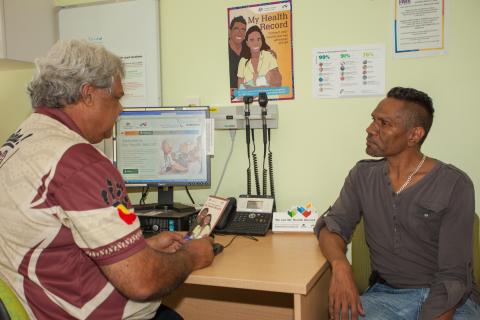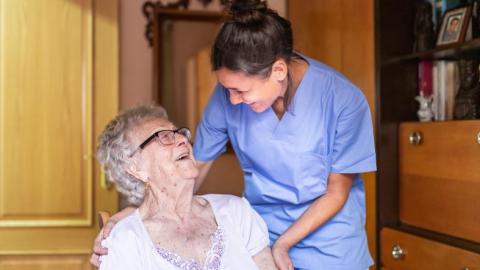Position Title: Medical Receptionist
Company Name: Smart Scan – Lloyds Northside Clinic
Work Setting: Private Medical Centre
Smart Scan Skin Cancer Clinic / Lloyds Northside Clinic
4740 Mount Pleasant- Mackay.
How can we help you today?

As of 1 February 2022, these patients will not have the applicable co-payment reduction applied when their prescriptions are being dispensed. PBS General Schedule medicines prescribed under the Program have been issued for patients who are not formally registered for the Program with Services Australia. The Department is seeking your assistance to address this issue.
To ensure eligible patients are formally registered for the Program and continue to receive their PBS medicines at the reduced PBS co‑payment, we are asking that you review the registration status for any Aboriginal or Torres Strait Islander patients. Patient registration status can be checked using the Health Professional Online Services (HPOS). If the patient is not formally registered with Services Australia, HPOS will indicate that the person is “inactive”. In this case you will need to contact that patient to arrange to have them assessed by either a PBS Prescriber or an Aboriginal and Torres Strait Islander Health Practitioner.
This issue must be rectified before 31 January 2022 to ensure all eligible Aboriginal or Torres Strait Islander patients who have previously received their PBS General Schedule medicines under the Program can continue to do so.
Information on registering patients for the Program can be found on the Department of Health website: https://www.pbs.gov.au/info/publication/factsheets/closing-the-gap-pbs-co-payment-measure
For PBS Prescribers, if you require information on using HPOS this can be found on the Services Australia website: https://www.servicesaustralia.gov.au/organisations/health-professionals/services/medicare/closing-gap-pbs-co-payment-health-professionals/prescribers
The Department of Health appreciates the important work that Practice Managers/ PBS Prescribers do and trust that you will assist the Department in ensuring that all eligible Aboriginal and Torres Strait Islander people are correctly registered for the program.
Helpful videos
Abortion and Contraception Services Map
Know Your Data Responsibilities: a brief guide on security governance and managing data breaches

Some people may be experiencing grief and bereavement because they have lost a loved one or someone they care for due to COVID-19. Others in aged care may be experiencing grief or loss due to the COVID-19 hotspot lockdowns and restrictions experienced in aged care:
- missing their visitors and routines
- absent regular staff
- unable to celebrate important events.
The lockdowns, social isolation, and ongoing uncertainty may have caused emotional trauma. COVID-19 and the associated restrictions may have raised past trauma, for example from their home country, childhood, or past pandemic occurrences. While some people can work through these feelings and recover, others may need help.
It’s ok to seek help. The Australian Government has funded mental health, grief, trauma, and education experts to produce online resources and training modules and support you either in-person or on the phone.
Support for grief, loss, and bereavement
Many older people using aged care, their loved ones, and the staff that care for them may be experiencing grief, loss, or bereavement because of COVID-19. The Australian Centre for Grief and Bereavement provides support, advice, and counselling in a one-to-one or group setting through phone calls, video calls, and in person.
You can free call 1800 22 22 00 for phone counselling, advice on how to help your organisation or people you care for. Visit www.aged.grief.org.au for resources. Download the ‘My Grief’ app for tips on how to help yourself, and how to support a loved one.
Resources about the impacts of trauma
COVID-19 may have exposed old or new emotional trauma. While some people recover, others may develop mental health problems and need help.
Phoenix Australia are trauma and education experts, and have developed information, tools, guidance, videos, and self-care strategies. The resources are free and available to people living and working in aged care, their friends, family and loved ones.
Go to www.phoenixaustralia.org/aged-care to download fact sheets, view webinars and use training.
Help for people living with dementia where behaviours are impacting their care
Aged care residents living with dementia may have changed behaviours because of COVID-19 restrictions.
Dementia Support Australia has a free national service providing 24-hour help, 7 days a week. Specialised engagement consultants, clinical support, plans and strategies, advice, and information services are available to people who care for someone living with dementia.
Need help managing changed behaviours? Call 1800 699 799 or visit www.dementia.com.au.
Advocacy and support
The Older Persons Advocacy Network (OPAN) is independent of Government and aged care providers. OPAN supports people receiving or applying for Government-subsidised aged care. The network offers free and confidential advocacy, COVID-19 advisory support and referral services for senior Australians accessing aged care, and their families and friends.
Call OPAN on 1800 700 600, 6am-10pm, 7 days a week, or visit www.opan.com.au.
Free, confidential, and accessible
All services and resources are free, confidential and respect your culture, religion, identity, and lifestyles. Translated brochures in 64 languages and an Indigenous design, and posters are available for download and to order in print on the program resources page. Trauma fact sheets are available on the Phoenix website, and Grief fact sheets are available on the Australian Centre for Grief and Bereavement website.
Interpreting is also available, call 131 450 for Translating and Interpreting Service (TIS), ask for your language to connect. Or call 1300 010 877 for Auslan Connections, email interpreter.bookings@deafservices.org.au, fax 07 3892 8511 or SMS 0407 647 591.
Complementing existing mental health supports
The Grief and Trauma Support Program complements existing Australian Government-supported mental health services. Crisis support is available from Lifeline and Beyond Blue, see Health to Health for more services or see your GP.
For more information
Visit the Australian Government Department of Health website or contact: ageing.and.diversity@health.gov.au
Presentation of the Whitsunday Council of Mayors Suicide Prevention Taskforce Consultation Paper
General Practitioner
Vaccine Works: Ingham primary health providers showcased in COVID campaign
